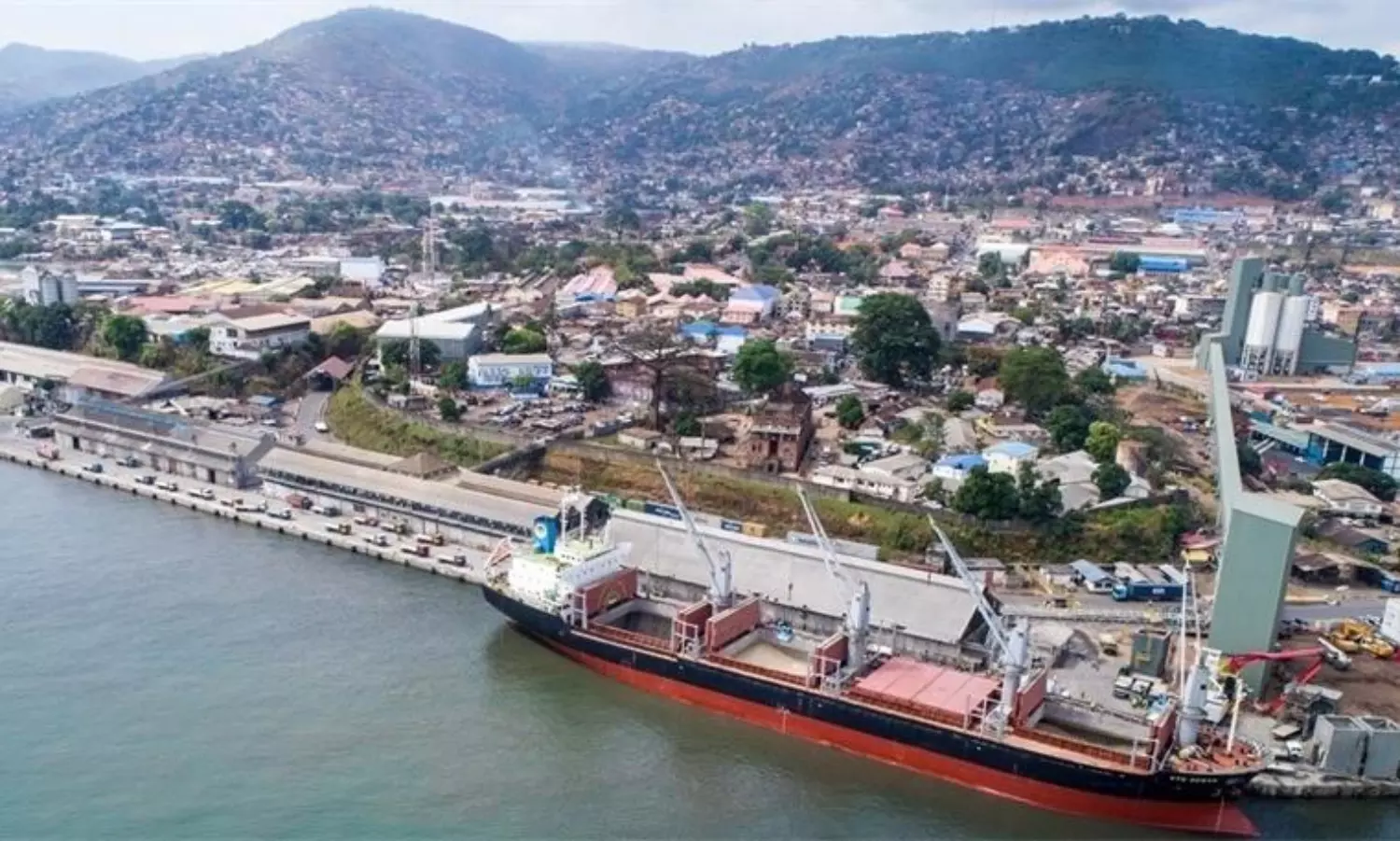Port of Freetown expansion - Sierra Leone is on growth path
Aim is to bring productivity of port facilities to the level of the best ports on the African continent

Port of Freetown, Sierra Leonean capital's port and one of West Africa's international trade gateways, is an example of the renewed dynamism in the port sector recently in West Africa. The berth extension work, led by Nectar Group, which will start soon will enable the country to improve its regional connectivity while revitalising the local economy hit hard by crises over the past decade.
Sierra Leone, which dealt with significant economic challenges over the last decade, recovered well from the impact of Ebola in tandem with a drop in iron ore exports.
Among the initial measures taken by the government was the intensification of trade with foreign markets.
The Sierra Leonean government has undertaken many key developmental reforms in recent years. One of them has been to commit itself to completely "oxygenating" the country through the launch of several projects to modernise the country's largest port, Freetown.
As a result, rehabilitation work on the quayside has been undertaken as well as the implementation of a computerised and secure management system and the delivery of modern and adapted handling equipment. The aim is to bring productivity of port facilities to the level of the best ports on the African continent. Various firms undertook a series of works and developments to modernise the ports' infrastructure.
Port's new clothes
Nectar Group, a subsidiary of R-Logitech, has also launched a project to extend the bulk and break-bulk terminal. Present in Sierra Leone since 1988, Nectar Group is responsible for all activities from the unloading of ships to the storage of goods in port warehouses including the maintenance of all terminal equipment.
Following the completion of the design phase at the end of last year, work on the extension of the bulk and break-bulk terminal at the port will start soon. Initially, the work will involve stripping the seabed on which the new port area will be built. The new berth will facilitate the arrival of vessels of up to 225 metres in length with a 13-metre draft, improving the economies of scale in shipping cargo.
The berth extension will allow the Port of Freetown to handle more and larger ships. It will also reduce the price of imported goods and improve the overall security of the site with the installation of new systems.

Christopher Boughton, Managing Director, Nectar Group
"Having been present in Sierra Leone for many decades, we are very pleased to be able to now progress on this significant investment and construction project as a vote of confidence in the future economy of the country," says Christopher Boughton, Managing Director, Nectar Group. "We believe that the port expansion will go hand in hand with the country meeting its ambitious growth targets, and we are proud to be a part of this journey."
The project, which is part of the government's strategy to develop easier access infrastructure in Sierra Leone, will help revitalise the economy after a period of Covid that has worsened the country's health and economic conditions. According to April 2021 IMF figures, GDP growth declined by 2.2 percent in 2020 but is expected to rebound to 3.6 percent in 2022, subject to the post-pandemic global economic recovery.
Nectar Group has been an international market leading provider of innovative and cost-effective solutions for the handling of bulk commodities for over four decades. The group currently has more than 400 employees.
R-Logitech is one of the leading international ports infrastructure operator and logistics services provider, and is a subsidiary of Monaco Resources Group S.A.M.
R-Logitech has more than 4,000 employees across more than 40 countries. Preliminary consolidated revenue increased from 34 percent from €666 million to €892 million in 2021, and adjusted EBITDA was up 9 percent to €139 million. Cash and cash equivalents amounted to €107 million as of December 31, 2021, and available unutilised long-term committed working capital lines was €36 million. The group increased its asset base in France, Scandinavia and in the emerging markets in 2021, which will lead to a significant increase in EBITDA during 2022.


